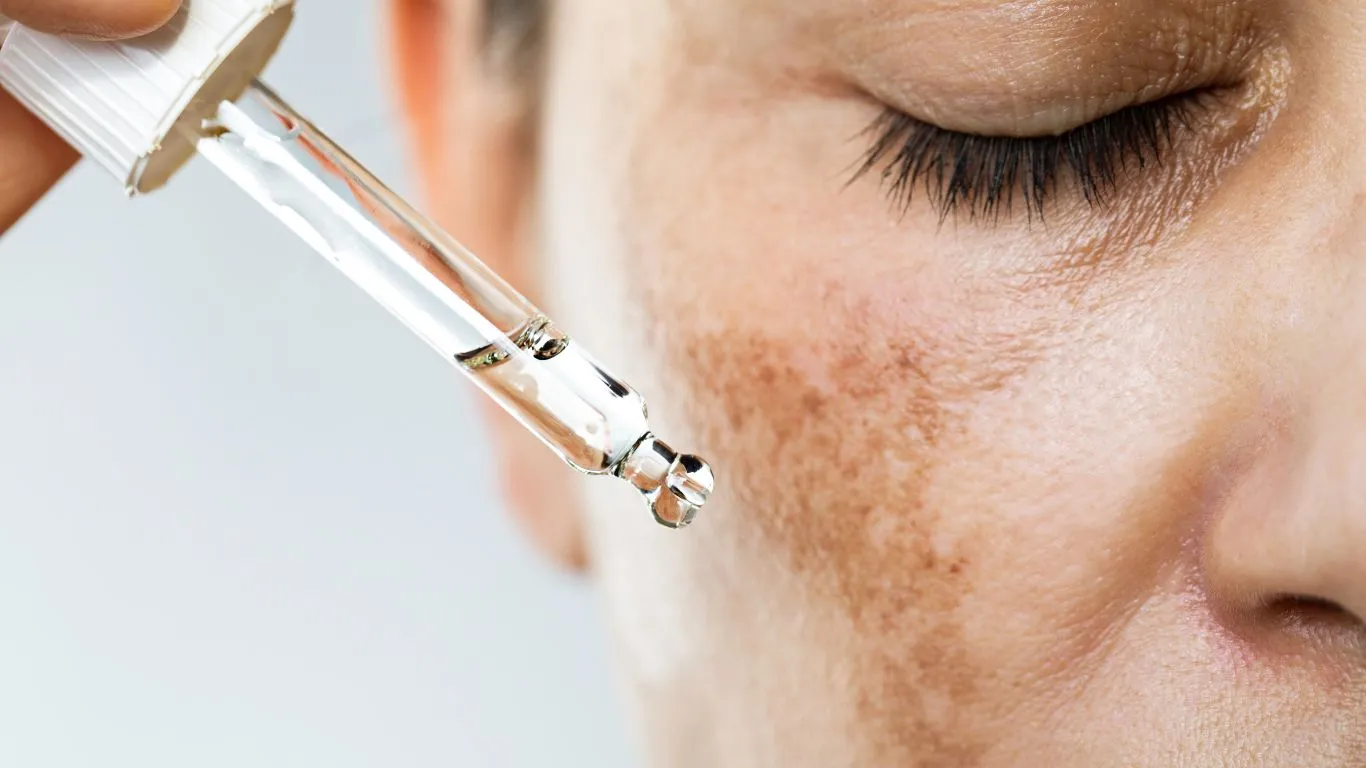Melasma and hyperpigmentation is a skin condition characterized by dark patches on the skin, often affecting areas such as the face and neck. It is common among women, especially during pregnancy or with prolonged sun exposure. Many people find melasma bothersome, prompting them to seek treatment options to reduce the appearance of these spots.
What is Melasma?
Melasma is a form of hyperpigmentation that occurs due to increased melanin production, the pigment responsible for skin color. It typically appears as brown or gray spots and is commonly concentrated on the cheeks, forehead, nose, and upper lip.
Causes of Melasma
Melasma is marked by brown or dark patches on the skin, frequently occurring in sun-exposed areas like the face, forehead, and cheeks. The main causes of melasma include:
- Sun Exposure: Ultraviolet (UV) rays stimulate melanin production, leading to dark spots.
- Hormonal Changes: Melasma often occurs in women during pregnancy (known as the “mask of pregnancy”) or due to hormonal changes from birth control pills.
- Genetic Factors: A family history of melasma can increase susceptibility.
- Cosmetic Products: Some products may irritate the skin, resulting in increased pigmentation.
- Hypothyroidism: An underactive thyroid can contribute to melasma.
- Stress: Psychological stress may play a role in melasma development.
- Certain Medications: Some medications can increase skin sensitivity to sunlight, including:
- Certain antibiotics.
- Some blood pressure medications.
- Medications containing retinoids.
- Diuretics.
- Antidiabetic medications.
- Antipsychotics.
- Antidepressants.
Types of Melasma
Melasma can be classified into several types, including:
Epidermal Melasma
Dark brown spots with well-defined borders that are prominent under light and respond well to treatment.
Dermal Melasma
Light brown or bluish spots with blurred edges. They do not change appearance under light and have a poor response to treatment.
Mixed Melasma
The most common type, featuring both brown and blue patches, showing a mixed pattern under light and having a moderate response to treatment.
Read More: الوردية
Are Melasma and hyperpigmentation Permanent?
Melasma is generally considered a chronic skin condition, meaning it can last a long time (three months or more). Some individuals may experience melasma for years or throughout their lives, while others may only have it temporarily, such as during pregnancy.
Treatment for Melasma and hyperpigmentation
To begin treating Melasma and hyperpigmentation, it’s important to first take steps to prevent its worsening. Avoid sun exposure, tanning beds, and irritating soaps. If you must be in the sun, use a broad-spectrum sunscreen containing iron oxide with a Sun Protection Factor (SPF) between 30 and 50, reapplying every two hours, and wear a wide-brimmed hat. These measures will help minimize melasma exacerbation.
The next step is to use topical medications. Some available options include:
- Azelaic Acid: Used as a cream or gel twice daily and is safe for use during pregnancy.
- Hydrocortisone: Used as an anti-inflammatory to lighten melasma and reduce the risk of further skin irritation.
- Hydroquinone: Applied at night directly to the spots for two to four months.
- Methimazole: Available as a cream or tablet, used for hydroquinone-resistant melasma.
- Alpha Hydroxy Acids: These exfoliate the skin, helping to remove surface layers.
- Tranexamic Acid: Can be used as a cream, injection, or oral medication.
- Topical Retinoids: Considered effective treatments but may cause skin irritation and should be avoided during pregnancy.
How Long Does It Take for These Medications to Work?
This varies based on the condition and medication used. Melasma may respond slowly to treatment. It’s important to note that these medications rarely eliminate melasma completely.
Other Treatments
Other options include:
- Chemical Peels: Used to remove the upper layers of skin and improve its appearance.
- Laser Treatment: Helps reduce dark spots by targeting melanin.
References:
- Melasma. (2024, May 1). Cleveland Clinic. https://my.clevelandclinic.org/health/diseases/21454-melasma
- Mfa, J. H. M. M. (2023, May 4). Understanding Melasma. Healthline. https://www.healthline.com/health/melasma

